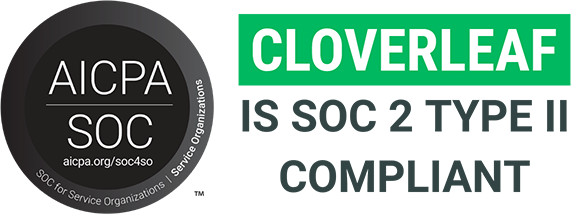I know what you’re thinking—”the internet” gets a lot of things wrong about, well, a lot of things. And yes, that’s true. But there’s also something genuinely valuable about peeking into the collective mind of the masses—even when we don’t agree with their opinions, or sometimes even find them tolerable.
Recently, I found myself tumbling down an internet rabbit hole. It started innocently enough, sparked by a passing comment from a colleague in a recent meeting. We’d been discussing management styles, and she casually mentioned something she’d read on the “r/managers” subreddit (here’s the link, if you want your own rabbit hole adventure: r/managers).
My first reaction was curiosity, but after spending a bit too much time exploring this online advice, my general takeaway was less excitement and more concern.
Sure, there was the occasional gem of useful insight, but overwhelmingly I encountered perspectives shaped by frustration, bitterness, or experiences with terrible bosses.
To sanity-check my own reaction, I fed the subreddit link into ChatGPT and asked for a summary of the most commonly shared management wisdom from this corner of the internet. And—no surprise here—the top two insights distilled from the collective mind were these:
- Managers exist primarily to solve problems: As one poster succinctly put it, “My biggest surprise as a new manager was realizing how much people depended on me to sort out their problems.”
- Document everything, especially during tough conversations: Or as another member emphasized, “Document, document, document—every meeting should end with paper in hand.”
Now, to be clear, this advice isn’t factually incorrect—problem-solving is indeed part of a manager’s job, and of course, documenting conversations can be important. But seriously? These are the absolute best insights we can come up with?
👉 Nothing about being a great listener or genuinely understanding the strengths of your team members?
👉 Nothing about fostering a growth mindset, inspiring your people to reach greater heights, or creating a safe environment built on trust and vulnerability?
I know—I shouldn’t be surprised by what I found from “the internet,” of all places. But the uncomfortable reality is, many managers—especially new ones—are relying on sources like Reddit for daily advice.
Which brings me to a critical realization: as L&D and talent management professionals, we’ve clearly got some important work ahead of us.
Get the free guide to close your leadership development gap and build the trust, collaboration, and skills your leaders need to thrive.
🥴 Reddit’s Most Upvoted Management Advice Misses the Point
When the best wisdom Reddit has to offer managers is “solve your team’s problems” and “document everything,” we’ve got some real issues.
First, there’s the idea that managers should always have the answers—that every problem must somehow funnel upward until it reaches a boss who magically solves it. This misconception isn’t just unhelpful, it actively undermines the potential of both the manager and the team.
Here’s the truth: some of the most effective management moments come when leaders admit openly they don’t have all the answers. It’s precisely this vulnerability—being comfortable enough to say, “I don’t know, let’s figure this out together”—that builds trust, empowers people, and unlocks creativity.
I’ve heard repeatedly from L&D leaders that one of the biggest obstacles managers face in providing meaningful feedback or coaching is their fear that they can’t advise someone without being the technical expert themselves. But the reality is, great coaching doesn’t require domain expertise; it requires curiosity, empathy, and the skill to ask insightful questions.
Second, while documentation of tough conversations isn’t bad advice per se, placing it among the two most crucial things for managers to do sets a troubling tone.
When the first instinct in a difficult conversation is, “I’d better document this,” it subtly encourages a defensive mindset, putting distance between manager and team rather than building trust. Yes, documentation has its place, but if we’re prioritizing paperwork over authentic connection, we’re missing the point entirely.
If this is the dominant message being consumed by new managers online, then it’s no wonder many workplaces struggle to create genuinely healthy and productive environments.
👉 Where is the advice on fostering a culture of listening?
👉 Where’s the guidance on how to recognize your team members’ unique strengths and intentionally put them in roles that let those strengths shine?
👉 Why aren’t we talking about the transformative power of psychological safety, growth mindset, or learning from failure?
The silence on these critical aspects of leadership isn’t just disappointing—it’s dangerous. It leaves managers navigating blindly, armed only with tactics that reinforce hierarchical, top-down management. And it risks perpetuating precisely the kind of leadership failures that drive people to Reddit in frustration in the first place.
Make Team Development More Impactful

Why Are Managers Turning to the Internet Instead of Their Organizations?
I get it—Reddit is accessible, fast, and feels authentic. You can post a question anonymously and within minutes have real-world anecdotes and advice from others who’ve been in your shoes.
But this raises a bigger, more concerning question: why are so many new and even experienced managers turning to random corners of the internet instead of their own organizations when they face management challenges?
One big reason is that most companies haven’t figured out how to support managers beyond initial training sessions, which often amount to little more than a few webinars or a binder full of “best practices.” Far too many organizations are still treating management development as a once-a-year event rather than an ongoing, daily need.
But managing people isn’t something you figure out in a workshop and then master overnight. It’s messy, complicated, and personal. It’s full of situations that require nuance, immediate guidance, and tailored advice. And when managers find their internal resources outdated, unhelpful, or simply nonexistent, they naturally go elsewhere—right onto the very internet forums where misinformation and misguided perspectives flourish.
We can’t ignore this reality.
If managers keep seeking help from Reddit rather than from qualified, strategic internal resources, companies risk a culture where poor management habits become the norm, not the exception. And that sets everyone up for frustration, burnout, and diminished performance.
Managers Need Contextual Support, Not Outdated Training Binders
This isn’t just a minor annoyance; it’s a critical gap that’s hurting teams, companies, and even careers. Because let’s be honest: management development can’t rely solely on delivering binders full of theoretical models and tips on “giving effective feedback” every few months. Those resources quickly become shelf decor rather than real solutions to real-time problems.
When managers hit a wall—when they’re not sure how to deliver tough feedback, handle friction between team members, or motivate someone who’s struggling—they don’t have days to wait for the next L&D session. They need immediate support that’s specific to their unique challenges, right there, in the moment.
This immediacy matters because management isn’t about generalized scenarios; it’s personal. It involves actual people, real emotions, and specific personalities. Effective guidance should feel tailored and timely—not abstract or generic. Without that, managers default to whatever quick advice they can find, no matter how flawed or incomplete.
Yet most traditional resources completely miss this. They’re slow, one-size-fits-all, and frequently disconnected from the actual daily reality managers face. If we’re going to genuinely equip managers to lead, we’ve got to offer something far more responsive and personalized than just another PDF or outdated training binder.
Managers Need More Personalization To Effectively Lead Their Team
Great management is deeply human. It’s about genuinely understanding the people on your team, what drives them, and what frustrates them—then creating conditions where they can thrive. And let’s be clear: this kind of nuanced understanding doesn’t come from vague, one-size-fits-all advice you pull off Reddit or Google. It certainly doesn’t emerge from training materials that gather dust on a shelf.
Instead, effective management demands personalization. It requires knowing things like: Does Jenna respond better to direct feedback or gentle coaching? Is Marcus motivated by public recognition or quiet, private acknowledgment? And when conflicts or tricky situations inevitably come up, what’s the best way to approach each individual on your team?
But here’s the problem—new managers don’t typically come equipped with these insights. And when they’re left to figure things out on their own, the result is often guesswork, stress, and mistakes that erode trust. That’s why meaningful management support must be context-driven and personalized—offering guidance specifically tailored to real people, real teams, and real moments.
When managers have immediate access to targeted, practical advice, suddenly they’re empowered. They stop guessing and start confidently leading. And that shift—away from generic, surface-level advice towards deeply relevant, personalized guidance—is exactly what management advice should be all about.
How To Close The Gap Between the Problems Managers Face and the Coaching They Actually Need
This gap between what managers actually need and the standard advice they typically get is exactly why we built Cloverleaf Coach.
It isn’t just another chatbot offering surface-level tips. Instead, Cloverleaf provides personalized coaching that’s genuinely insightful, informed by validated assessments and the unique dynamics of your team.
It’s like having an expert coach sitting alongside you—helping you navigate challenging situations, difficult conversations, or team friction, right at the moment you need it most.
Imagine you’re about to give tough feedback to a team member. Instead of just “documenting it,” you can ask Cloverleaf Coach specifically how best to approach that particular person based on their personality, work style, and the context of your relationship.
Rather than guessing or worrying you’re doing it wrong, you get immediate, practical guidance tailored precisely for that interaction.
Or perhaps your team is feeling disconnected or unmotivated. Instead of Googling generic advice about motivation, Cloverleaf Coach can proactively guide you toward what will resonate with each team member, leveraging their strengths to reignite engagement.
This is the kind of immediate, context-rich support that elevates managers from merely reactive problem-solvers into truly effective leaders who build trust, confidence, and empowered teams.
Because let’s be honest—managers don’t have time to sort through a flood of generic advice when they’re in the thick of a management challenge. They need real solutions, personalized and precise, exactly when it matters most.
Managers Deserve Better Support Than Resorting To The Internet
Ultimately, the fact that so many managers resort to Reddit for help isn’t just disappointing—it’s a sign that something’s fundamentally broken in how we support leadership development. It reminds us just how much work remains for those of us tasked with preparing managers to lead effectively, empathetically, and confidently.
We need to set a higher standard, raising the bar for management development so that leaders don’t feel their only option is random internet advice.
It’s not enough to gather people occasionally into classrooms or webinars, hoping the information sticks. Real-world management requires daily, personalized guidance that meets managers exactly where they are—facing real people, in real-time situations.
At Cloverleaf, we believe managers deserve better, more insightful coaching that actually helps them lead their teams. Not generic tips, not dusty training manuals, and certainly not overly simplistic advice sourced from anonymous internet forums.
Because when managers have access to personalized, context-rich support exactly when they need it, teams thrive, organizations improve, and managers themselves become confident, capable leaders.


